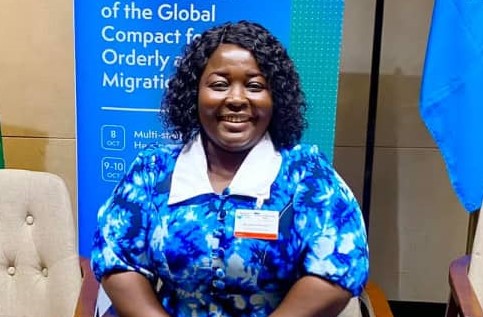As an advocate for menstrual health and gender equity, I commend the Ghanaian government for allocating GH¢292.4 million in the 2025 budget to provide free sanitary pads to female students in primary and secondary schools.
This is a significant step in addressing period poverty, reducing school absenteeism, and ensuring that no girl is forced to stay home simply because she cannot afford menstrual hygiene products.
At Alive Today, a youth-led non-profit organisation, we have been distributing free sanitary pads to schools across Ghana for years. We have seen firsthand how a simple pack of sanitary pads can restore a girl’s confidence and keep her in school. While we welcome this initiative, we must ensure that its implementation is inclusive, decentralised, and sustainable.
One of our biggest concerns is the risk of urban bias in distribution. Too often, well-intentioned programs concentrate resources in cities while rural and underserved communities are left behind. A needs-based, community-driven model is essential to ensure that every girl, regardless of location, has access to sanitary products.
At Alive Today, we believe that collaborating with civil society organizations (CSOs) and community-based groups is the best way to achieve this. These organisations have the experience, networks, and deep-rooted connections to ensure equitable distribution, especially in hard-to-reach areas.
Another critical aspect we must consider is sustainability. As we provide free sanitary products, we cannot ignore the environmental impact of single-use plastic pads. We urge the government to promote biodegradable and reusable sanitary products where possible. Sustainable options not only reduce plastic waste but also provide long-term solutions for girls who may struggle to access disposable pads regularly.
Beyond sustainability, we must also think about local production. A long-term strategy that invests in young Ghanaian entrepreneur in the menstrual hygiene sector will create jobs and boost our economy. Instead of relying on imported products, let us build local capacity to produce eco-friendly sanitary solutions for our girls.
Alive Today stands ready to work with the government, development partners, and other stakeholders to ensure the success of this initiative. If done right, this program can transform menstrual health management in Ghana, ensuring that no girl is forced to miss school because of her period.
We look forward to meaningful engagement and action that will make this initiative not just a short-term intervention but a lasting solution to period poverty in Ghana.
********
Sandra Teiko Lewu, Executive Director, Alive Today
Latest Stories
-
GES urges supervisors and invigilators to uphold integrity and honesty
2 hours -
Don’t let your parents down – Omane Boamah to Pope John SHS students
2 hours -
Prof Sharif Khalid defends gov’t’s record on health workers, questions comparisons with UK
3 hours -
Razak Opoku: KGL-NLA contract the best since establishment of NLA in 1958
3 hours -
Daily insight for CEOs: Customer-centric innovation – Designing for relevance and growth
3 hours -
36 Prison inmates write BECE, 2 candidates die, 16 more invigilators arrested
4 hours -
GII boss commends AG’s anti-corruption approach
4 hours -
Customs Commissioner hails GRA’s support services division as ‘Unsung Engine Room’ at strategic retreat
5 hours -
Good gov’t can have bad nuts – Agyapa Mercer backs NSA probe, calls for accountability
5 hours -
Let’s not entangle AG’s ORAL probe in politics – Dr Yankson
5 hours -
GRA’s support services sivision champions strategic transformation at 2025 management retreat in Ho
5 hours -
GES extends school selection deadline to June 25 amid Private SHS inclusion
5 hours -
7 Lawra SHS students missing, feared dead after boat capsizes on Black Volta
6 hours -
Gov’t dismissive and insensitive over nurses’ plight – Agyapa-Mercer
6 hours -
NSA still using fraud-prone system after GH¢548m scandal – MFWA raises alarm
6 hours

